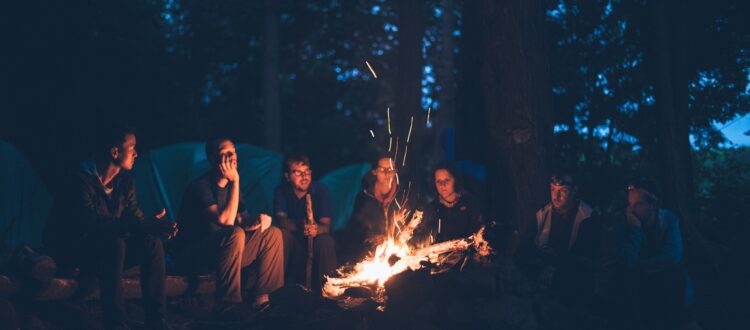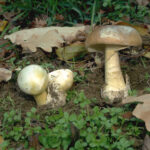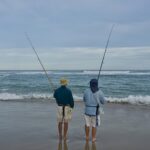
Easter is a great time to get away and go camping in the beautiful Australian bush or beach. But food poisoning is no fun at the best of times, and it can be a major problem if you are camping away from the convenience of toilets, hand basins and medical help.
Cathy Moir, Food Safety Information Council Chair, said that going bush takes us away from the home comforts we are used to – such as efficient, large fridges, running water and fancy cooking equipment.
‘Here are five food safety tips to help keep you and your family food safe while bush camping:
1.Keep it cool. Firstly, when camping you may only have access to a small car fridge which may have temperature fluctuations. It’s always a good idea to take a fridge thermometer to check your fridge or cooler is running at 5°C or below. Make sure the power supply is constant when camping and you might need to find an alternative power supply so your car battery isn’t drained. If you only have a cooler pack it last, make sure you put perishable food in it straight from the fridge or freezer and keep it cool with ice or frozen bricks or add in a large block such as an ice-cream container size, of ice. Some camp sites have facilities where you can refreeze bricks or you can purchase ice each day from petrol stations or shops. Consider using separate coolers for food and for drinks so the food cooler won’t constantly be opened for drinks. For longer trips, using block ice and pre-freezing meals and items like meat you plan to eat later in the trip will allow the food to be kept longer and helps keep the cooler cool. Plan to eat perishables early in the camping trip.
2. Separate risky food. Make sure raw meat, seafood and poultry is stored in sealed leakproof containers at the bottom of your cooler or fridge where they can’t drip onto other ready to eat food like fruit and vegetables. If you put items in ziplock bags make sure to double bag and that all the air is removed before you seal them so they do not break open in the cooler. Consider having a small separate cooler for raw meat. Keep utensils used for preparing raw foods well away from ready-to-eat foods.
3. Choose safer foods. If you are away from shops for a few days your camping fridge or cooler will have limitations and you’ll need to take dried food, UHT products like milk and juice, and food in jars or cans. Fresh fruit and vegetables can be taken, but in warm weather some will deteriorate quickly so you may need some extra dried or canned varieties for later use. Remember, most foods in cans or jars cannot be stored out of refrigeration once opened so make sure that you buy containers small enough so that all the food is used up in one meal. Avoid creating leftovers, discard them unless you can store them at or below 5 °C until they are eaten.
4. Cooking and reheating. Take a meat thermometer and use it to check that you always cook poultry, stuffed meats, sausages, offal, leftovers and minced meat such as hamburger to 75°C in the centre. Steaks, chops and whole pieces of meat should be cooked to 63 °C (medium rare) and left to stand for 3 minutes. Use a clean plate and clean utensils for cooked meat. Never re-use the same plates and utensils that you used for the raw meat without washing and drying them thoroughly. And another reminder, always beware of any current fire restrictions if you cook on an open fire.
5. Clean water. Not all camp sites have safe drinking water so either bring your own bulk clean water for drinking, washing raw food or for rehydrating food to be eaten without further cooking. You can also bring water to the boil which will make it safe. Boiling water is the most effective method of disinfection. Chemical methods, such as sterilising tablets, may not kill some parasitic organisms (giardia amoeba, and cryptosporidium) so ensure you follow instructions carefully. Always wash hands with soap and dry them thoroughly after going to the toilet (or use disposable wipes or hand sanitiser) and wash again before handling food. Set up a dedicated hand washing station near your camp site when facilities are limited or a long way from camp.
‘Finally, don’t forget to keep your campsite clean. Cover food and store food off the ground to protect it from insects, animals and dust and keep your campsite clean. Birds and animals can be a source of food poisoning bacteria so don’t leave food, dirty utensils, food scraps and rubbish lying about to attract them. All rubbish should be put in bags and kept away from food and don’t forget to take this rubbish back out with you when you leave. Tip washing-up and other waste water in any designated site or at least well away from water sources such as lakes and rivers,’ Ms Moir concluded.
Media contact:
Lydia Buchtmann, Food Safety Information Council, 0407 626 688 or info@foodsafety.asn.au



